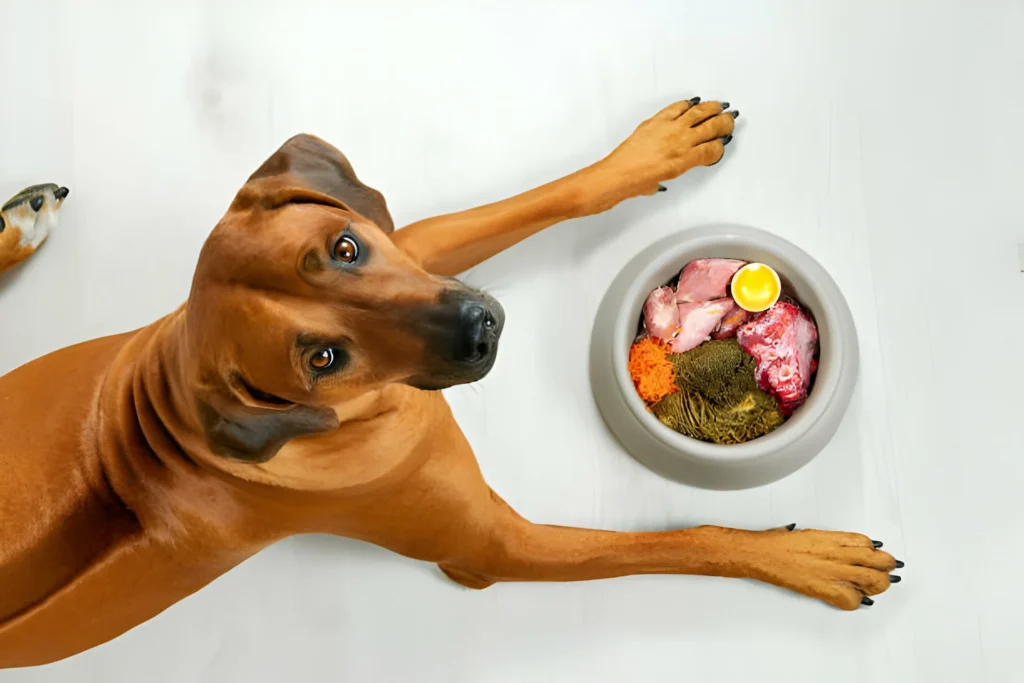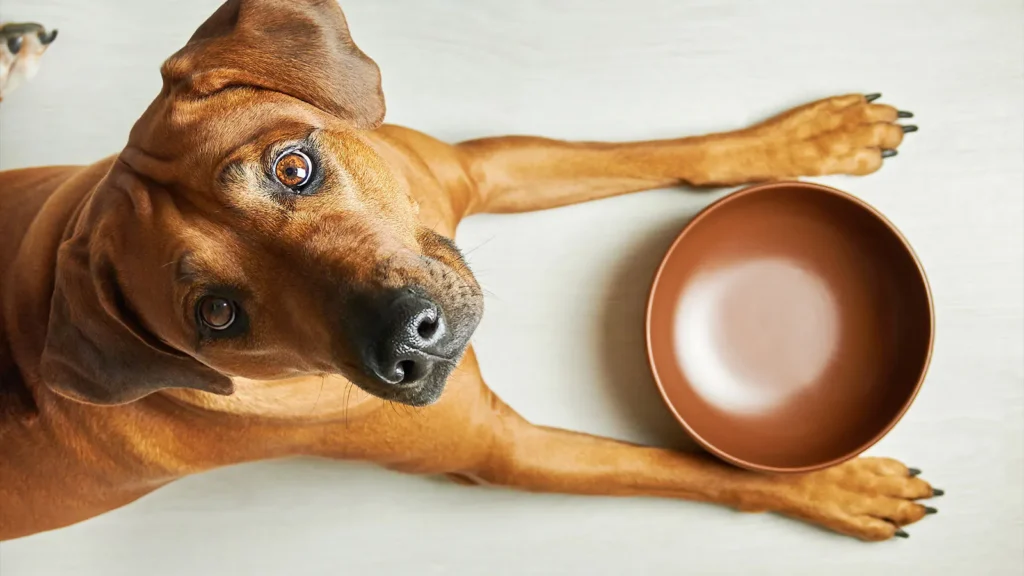Is your dog letting out a little too much gas? While it’s completely normal for dogs to pass gas occasionally, excessive or stinky flatulence can sometimes indicate an issue with their diet or digestive health. Fortunately, there are effective remedies to help your furry friend feel more comfortable.
Want to understand why your dog is so gassy in the first place? Read our full guide: Why Is My Dog Farting So Much? Causes, Smelly Gas, and When to Call the Vet
In this article, we’ll dive into the top 5 dog fart remedies that actually work—so you and your pup can breathe a little easier.
1. Adjust Their Diet: Choose Easily Digestible Foods

If your dog is gassy, the first thing to look at is their diet. Some ingredients in your dog’s food, like beans, dairy, or high-fat foods, can cause excessive gas. Transitioning to a high-quality, easily digestible dog food can reduce the amount of air your dog swallows during meals and improve overall digestion.
Why It Works: Quality dog foods made with real, easily digestible ingredients like Purina Pro Salmon, chicken, sweet potatoes, and brown rice. can help promote better gut health. This helps minimize the fermentation of undigested food in your dog’s intestines, which is a common cause of gas.
What to Look for:
- Easily digestible proteins (like chicken or fish)
- Limited ingredients or hypoallergenic foods if your dog has sensitivities
- Avoid high-fiber foods and ingredients that are known to cause bloating (such as beans or soy)
2. Add Digestive Enzymes or Probiotics

Adding digestive enzymes or probiotics to your dog’s diet can improve their gut health, reducing excessive gas and bloating. Digestive enzymes help break down food more effectively, while probiotics promote the growth of beneficial gut bacteria.
Why It Works: With the right enzymes, your dog’s body will better process food and absorb nutrients, leading to less undigested food in the intestines. Probiotics restore balance in your dog’s gut, which can prevent gas buildup and digestive upset.
How to Use:
- Look for supplements that are designed for dogs
- Follow the recommended dosage based on your dog’s weight
- Some popular products include Pan-tenex 10x Digestive Enzymes and Chew + Heal Digestive Enzymes with Probiotics
3. Avoid Table Scraps and Human Food

While it can be tempting to share your meal with your dog, table scraps and human food are often rich in fats, spices, and other ingredients that can cause digestive upset and gas. Fatty or rich foods, like greasy meats or dairy, are particularly hard for dogs to digest.
Why It Works: Human food isn’t formulated to meet the nutritional needs of dogs. It can cause gastrointestinal distress, resulting in gassy behavior. Avoiding these foods can help prevent flatulence and other digestive issues.
What to Do:
- Stick to a dog-friendly diet that’s balanced for their age, size, and activity level
- Use dog-safe treats instead of offering table scraps
4. Encourage Regular Exercise

A lack of exercise can lead to digestive issues, including excessive gas. Regular walks or playtime help your dog pass gas naturally and keep their digestive system moving. Physical activity also helps reduce stress, which can sometimes contribute to gas buildup.
Why It Works: Exercise helps stimulate digestion, encouraging the movement of food through the digestive tract. It also helps your dog relieve gas and maintain a healthy weight, which can reduce bloating and gassiness.
What to Do:
- Aim for 30 minutes to an hour of activity each day, depending on your dog’s breed and energy level
- Try incorporating both walks and playtime into their routine for optimal results
5. Consider a Fasting Day (Under Vet Supervision)

If your dog is experiencing frequent or painful gas, a fasting day (usually 24 hours) can help reset their digestive system. This allows their gut to clear out and can reduce bloating and discomfort caused by excessive gas.
Why It Works: Fasting gives your dog’s digestive system a chance to rest and recalibrate. By skipping meals for a day, your dog’s intestines have the opportunity to process and eliminate any accumulated gas.
Important Reminder: Always consult your vet before considering a fasting day for your dog, especially if they have underlying health conditions like diabetes or are very young or elderly. Some dogs may need more frequent meals for energy.
Say Goodbye to the Stinky Gas!

Excessive dog flatulence can be annoying, but it’s often manageable with a few simple changes to your dog’s diet and lifestyle. By switching to a more digestible food, adding digestive enzymes or probiotics, and avoiding table scraps, you can help reduce your dog’s gassy symptoms. Don’t forget to keep them active and consider a fasting day if appropriate.
For even more support, an online dog training program like The Puppy Coach can guide you through building better habits around feeding, exercise, and overall health — perfect for tackling digestive issues from the root.
If the gas persists despite these efforts, it’s important to consult your veterinarian to rule out any underlying health issues. With the right approach, you can help your dog feel more comfortable and enjoy a quieter, less stinky home!



